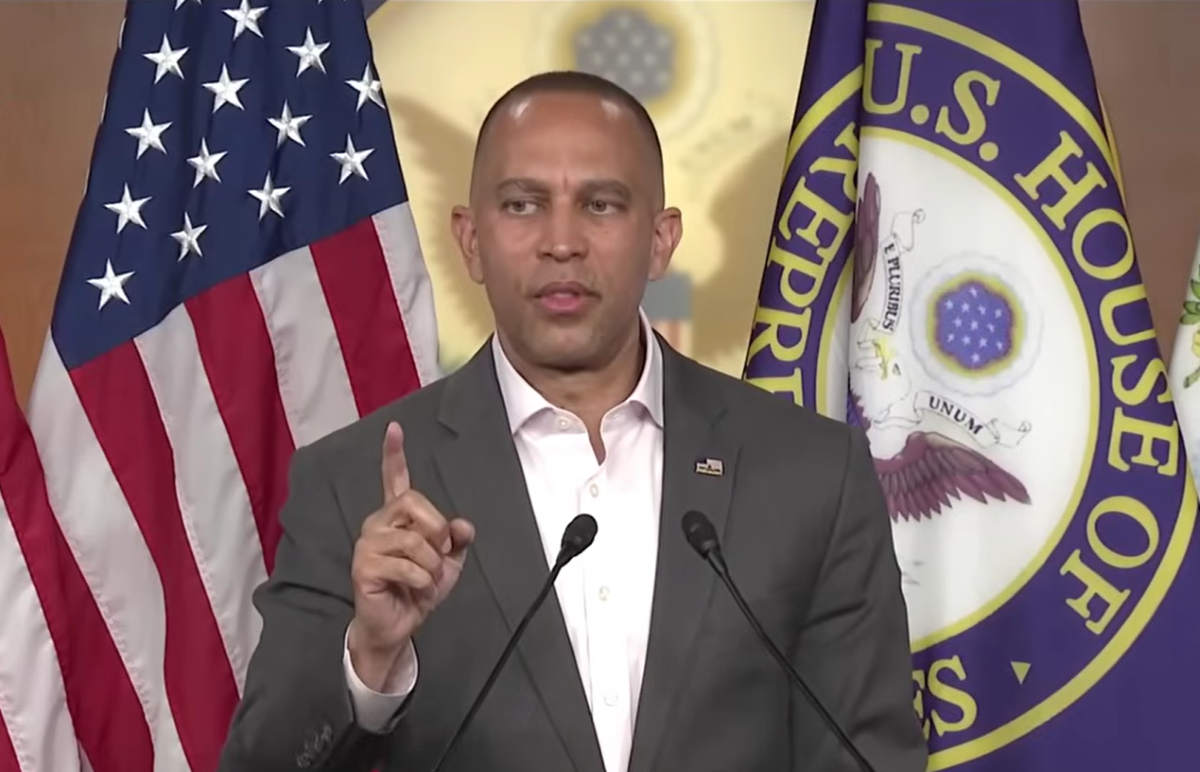A recent sniper attack at a Dallas, Texas ICE field office has reignited discussions surrounding inflammatory rhetoric used by some Democratic lawmakers. Critics argue that comparisons of Immigration and Customs Enforcement (ICE) agents to the Gestapo, the Nazi secret police, contribute to a hostile environment for law enforcement.
Explainer Shooting at ICE Facility Follows Controversial NBC Report
Minority Leader Hakeem Jeffries, D-N.Y., recently stated, "Every single ICE agent who’s engaged in this aggressive overreach, no matter what it takes, no matter how long it takes, will, of course, be identified. This is not the 1930s." Similarly, Rep. Dan Goldman, D-N.Y., has made multiple comparisons of ICE to the Gestapo, describing them as "secret police" using "Gestapo-like tactics."
The Federalist reached out to Jeffries, Goldman, and other lawmakers for comments regarding their statements and whether they would consider issuing apologies. None responded to the inquiries.
Rep. John Larson, D-Conn., has also made headlines for his comments, asserting, "This is not Germany! That’s the SS and the Gestapo! This is the United States of America! Unmask yourselves!" His office did not respond to requests for an apology, which critics argue could foster a more civil discourse.
The recent sniper attack, which left multiple people injured, has drawn attention to the rhetoric surrounding ICE. The phrase "anti-ICE" was reportedly found written on ammunition at the scene, raising concerns about the potential influence of hostile language on violent actions.
Democratic Minnesota Governor Tim Walz previously referred to ICE as "Donald Trump’s modern-day Gestapo," while Rep. Pramila Jayapal, D-Wash., described ICE agents as "coming and kidnapping and disappearing people on the streets of the United States." Rep. Stephen Lynch, D-Mass., has also made comparisons to the Gestapo, stating, "When you compare the old films of the Gestapo grabbing people off the streets of Poland, it does look like a Gestapo operation."
Despite the serious implications of their statements, none of these lawmakers responded to requests for clarification or apologies. The Federalist also inquired with NBC regarding a previously published article that was later found to be inaccurate, which claimed ICE held a five-year-old child hostage to coerce a parent into surrendering.
The use of the term "Gestapo" to describe law enforcement has become more common in political discourse, prompting concerns about the impact of such language on public perception and safety. Critics argue that these comparisons can incite violence against law enforcement and undermine the rule of law.
Beth Brelje, an elections correspondent for The Federalist, highlights the potential consequences of inflammatory rhetoric, stating that words can have a profound impact on culture and public sentiment. As the debate continues, the lack of accountability from lawmakers raises questions about the responsibility of public figures in shaping discourse around law enforcement.
As the situation evolves, the relationship between political rhetoric and public safety remains a critical issue for both lawmakers and the communities they serve.
Why it matters
- The sniper attack at the Dallas ICE office highlights the dangers of inflammatory political rhetoric against law enforcement.
- Critics argue that comparisons of ICE to the Gestapo may incite violence and create a hostile environment for agents.
- Lawmakers' refusal to apologize for incendiary comments raises concerns about accountability in political discourse.
- The incident underscores the need for a more civil dialogue regarding immigration enforcement and public safety.
What’s next
- Federal investigations into the sniper attack are ongoing, with a focus on the influence of rhetoric on violence.
- Calls for lawmakers to clarify or apologize for their statements continue, with no responses yet received.
- Public forums may be organized to discuss the impact of political language on law enforcement safety.

